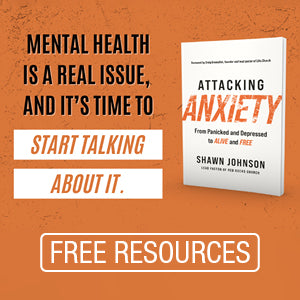Small Group Leaders and Ministry Blog
Small Group Leaders and Ministry Blog
4 Steps to Help Your Congregation Build Deeper Intimacy with God
Invitation to a 7-Week Journey through 1 John
Daily Seeds is a proven discipleship resource that works in a variety of contexts, including small groups and Sunday schools. Assuming your group meets weekly, class members should read one chapter from the 1 John study every day for 6 days. The 7th day of the week you will meet with your group to share, pray, and encourage one another with insights or struggles that group members encountered during the week’s readings.
Finding Peace Beyond Understanding: A Look Inside Consider the Lilies
Top 6 Bible Studies on Revelation and the Hope of Heaven
Rediscover the rhythm of Advent and finding joy in waiting
7 Apologetics Bible Studies Defend Faith Non-Traditionally
This collection on apologetics departs from the traditional objection-handling approach to defending our faith. Whether we’re journeying with a former Muslim, or looking through the lens of a filmmaker, or talking about a classic Christian book, or watching a discussion amongst avowed nonbelievers, these studies deliver intriguing perspectives, compelling arguments, and inspiration to improve upon our traditional approach to defending our faith.
Create a Community Through your Small Group Ministry
3 ways to create disciple-making small groups
Working with Teachable Moments
Sometimes, however, something happens in the group that breaks everyone free from these regular patterns—moments that pull the group away from its routine and into something different.
This is when group members often experience a jump of some kind. Relationships solidify quickly into a deeper bond. Something clicks in a person’s mind that enables them to truly understand and apply a doctrinal truth. Someone experiences conviction about an area of sin and confesses it openly.
I refer to these times as “teachable moments.”
Women’s Small Groups — It’s Where Women Flourish in Every Season
5 Great Ways to Develop Leaders for Your Small Group Ministry
Young Adult Bible Study: Where Life Gets Figured Out
The Power of a Mens Bible Study: It’s Where Men Find Out They’re Not Alone
Five Reasons Your Church Needs a Small Group Ministry
Jesus and Women Bible Study Watch List
We can learn so much from how Jesus valued and treated women! Let’s study Jesus’ interactions with seven women in these studies by women, for women.
5 Verses + 5 Bible Studies for Black History Month
February is Black History Month in the United States, when we focus on the contributions people of African descent have made to this country. You can embark on a personal Bible study for Black History Month, or lead your church or small group to collectively understand the plight of a people made in God’s image, and acknowledge God’s goodness at work in their remarkable achievements. To help guide the conversations of a church group, here are five Bible verses about diversity, justice, and equality that can help frame the discussion, then five Bible studies to help you think more deeply about the important principles Black History Month spotlights.


















